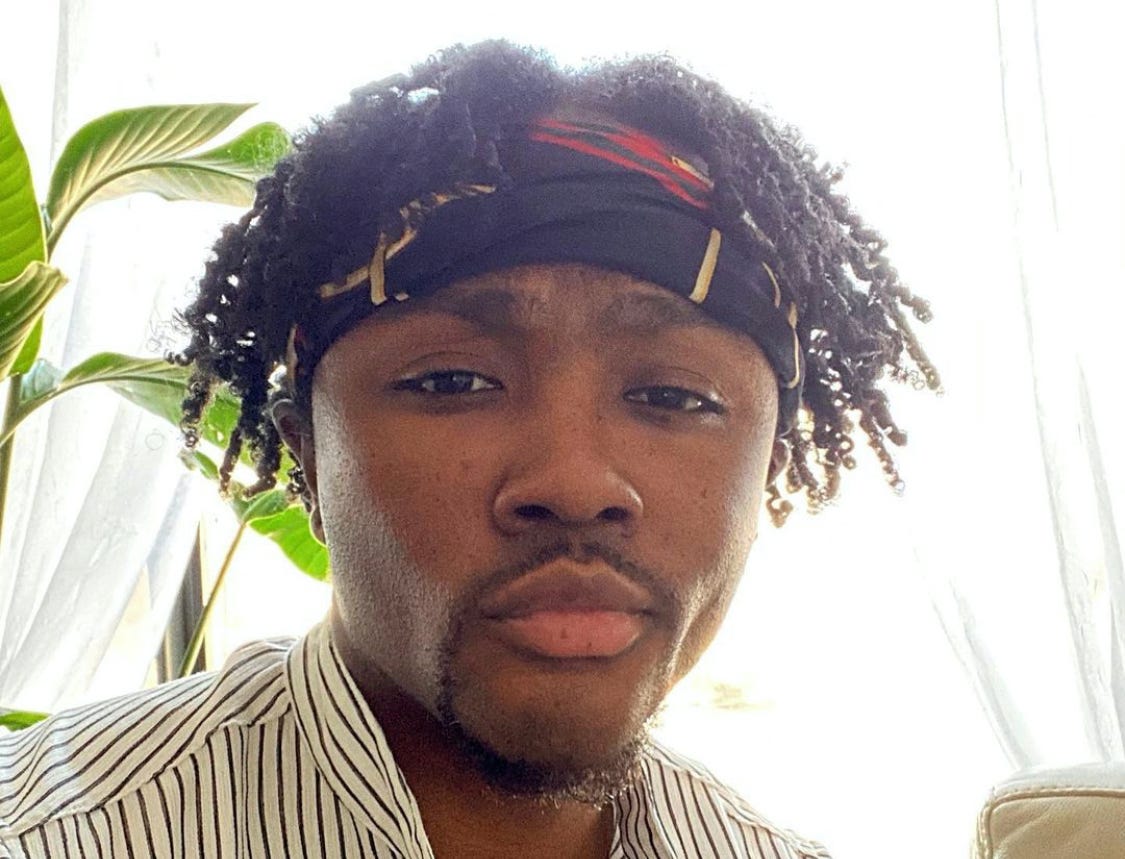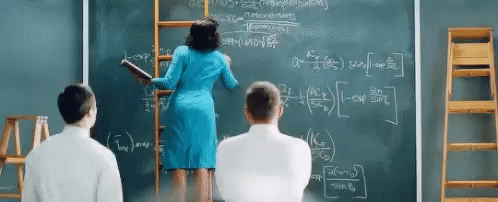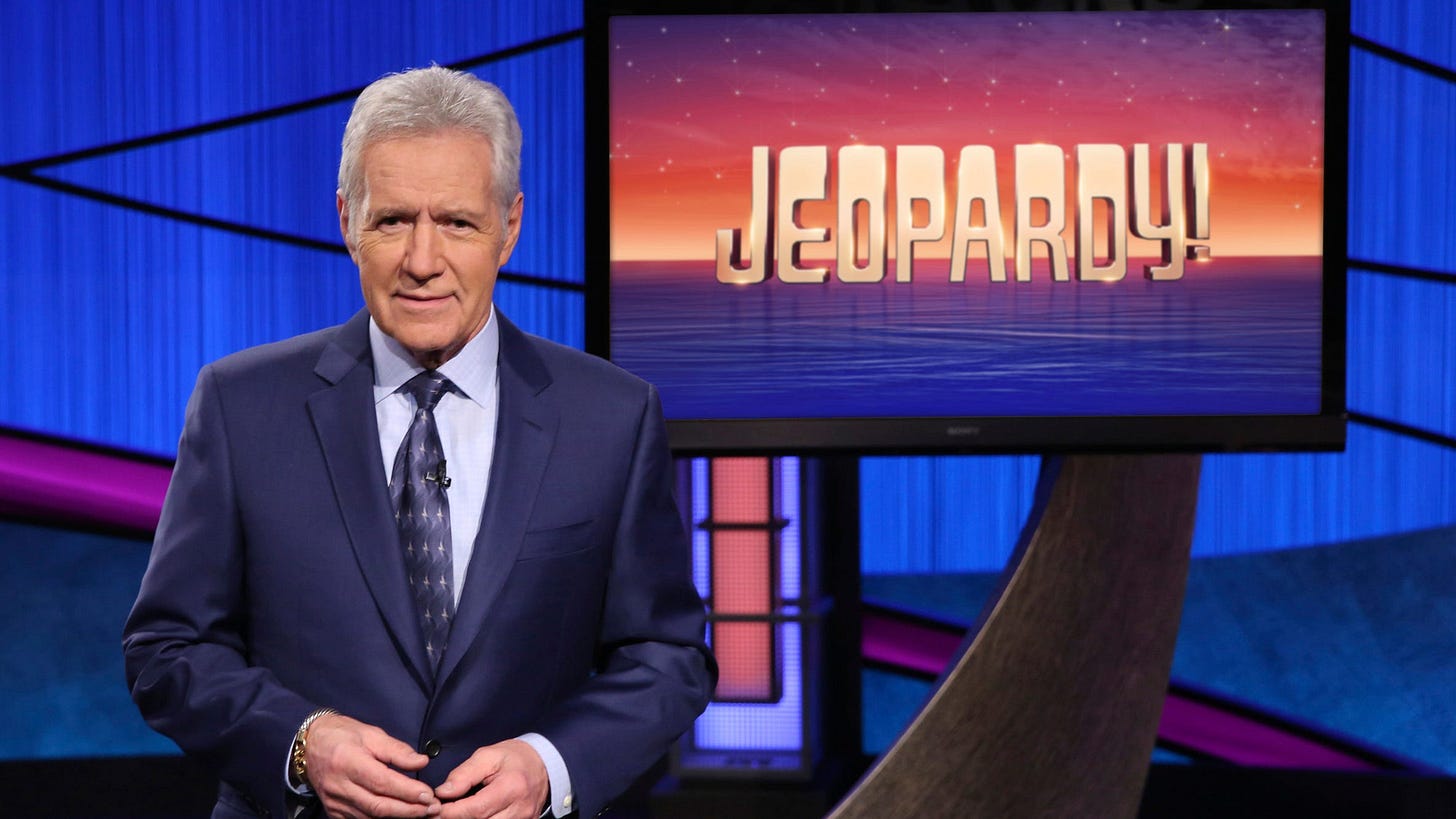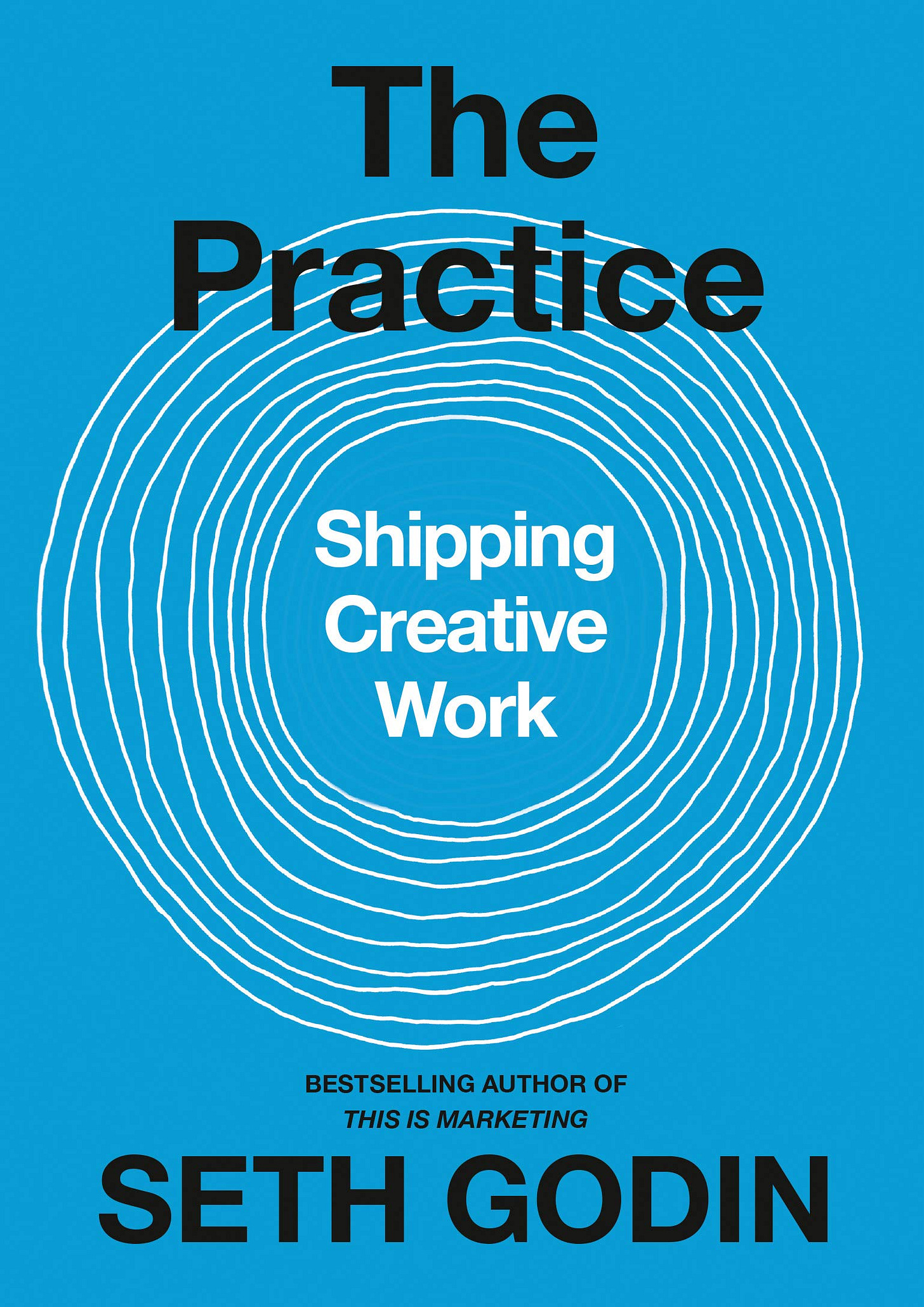Exclusive: RK Jackson on how his brilliant live tweets helped us make sense of the historic 2020 Election
While the cable networks had their middle-aged multimedia anchors and fancy-schmancy big boards, this Atlanta native kept us in the loop with a relatable mix of memes, gifs and emoji.
What were you doing on Election Night when it felt like we were headed for four more years of the last four years? If you're one of RK Jackson's nearly 8,000 Twitter followers, then you were scrolling your feed as the Atlanta native and creative director live-tweeted updates from battleground states like Arizona, Nevada, Pennsylvania and Georgia, which hadn't elected a Democratic presidential candidate since 1992 — but was ripe for the flipping after a massive Stacey Abrams-led get-out-the-vote movement mobilized hundreds of thousands of Black, brown and first-time voters.
Obviously, Jackson wasn't alone in his play-by-play coverage. You already know the broadcast and cable networks had their multimedia anchors and fancy-schmancy big boards working overtime to keep us posted. But none of them could match Jackson's relatable mix of gifs, memes and emoji that brought much-need insight and levity to the extraordinary moment.
In his first interview since becoming an overnight political sensation (there's even a petition calling on CNN to give him a job!), Jackson shares the backstory on what led him to live-tweet the returns, the origins of his political activism and if we can expect one of his epic playlists in time for the inauguration. The conversation has been lightly edited for length and clarity.
The Supercreator: How does it feel to be a Georgia voter in this moment?
RK Jackson: It feels great! Georgia has always been a cornerstone in the Voter Rights movement. From the Black Suffrage Movement in the ‘30s, the Atlanta Student Movement and obviously the Civil Rights Movement in the ‘60s. It feels great to be able to etch my name in that history with my vote.
What inspired you to start reporting the Georgia results in real-time on Twitter?
While I’m not a statistician, I love data and history, so this was something I thought would be fun. When I noticed that there were hundreds of thousands of ballots not counted in key Georgia counties, I wanted to dig a little deeper and uncover more. When I realized [the] majority of those votes were in traditionally Democratic strongholds I did the math and knew we could actually flip Georgia blue and not just on paper which grassroots organizers have been saying about Georgia for years.
Have you always been interested in presidential politics?
Presidential politics, eh, not so much, but more policy and progress. I wanted to attend an HBCU because my dad is an alum of Howard University and he is really the driving force behind what I feel is my civic responsibility. My time at Clark Atlanta University definitely shaped my worldview during a critical time in our country with our first Black president, protesting, organizing and volunteering.
How did it feel to know that people were looking to you for accurate updates instead of mainstream outlets like CNN or MSNBC?
Haha! You know outside of marketing and design, I’m a social and digital strategist so everybody loves a good live-tweeting event. This really felt like a family countdown, you totally knew it could happen but getting to experience the inevitable was awesome. I also tweet in a very specific voice that I think people gravitate towards [Laughs].
How can Democratic leaders mobilize this support from Black communities into policies that contribute to our socio-economic well-being?
A question! I think it takes us all. Democratic leaders have now been shown that Black people (specifically Black women) are consistently the deciding factor in the success of electing our leaders and we can no longer be ignored.
Record turnouts, (pushed by young activists in key demographics) are going to be the future of this party. We have to continue to hold these people accountable for true change, governing with integrity and accountability. I hope we can begin to not question whether it's possible because people are showing us that it is.
When you're not serving up political commentary, you're a talented creative director. How would you describe your approach to creative expression?
Thanks! I’ve always been into aesthetics, my dad is an Architect and worked for RL Brown & Associates which is a historic black firm in Atlanta that was integral to the infrastructure around the Centennial Olympics in ’96. So my creative eye has definitely evolved over time but it is relatively settled in structure, clean lines, negative space, et cetera.
You're also known for your playlists. How did you get started curating them? And: Can we expect a presidential playlist to vibe to between now and inauguration?
They’re a labor of love honestly. Music has been in my life since a kid, I played multiple instruments in band and orchestra and even sang in the choir at church. I began curating complication projects before music streaming got really popular back in 2012 and would host them from MediaFire [Laughs].
I couldn’t find all my favorite artists like Missy and Outkast’s “best of” [playlists] so I made them. That evolved into making Valentine’s Day compilations because I’m just that kind of guy and eventually compiling songs monthly that I love and release as a playlist.
I don’t have any plans for a presidential playlist but if the Biden/Harris Administration would like me to curate one I am absolutely down.
What's next for you?
Rest and then canvassing for the January 5th Special Election here in Georgia! We’ve got two really important Senate seats to secure for John Ossoff and Raphael Warnock and if the turnout for the general election was any indication we’re going to see millions of Georgians mobilize against racism, corruption and greed. We also have to be vigilant about disinformation. It’s been a tool to divide and obliterate our communities for over a hundred years and we need each other now more than ever.
FYI
To learn more about how to donate or help Georgia voters elect Ossoff or Warnock and tip the balance of power of the United States Senate to Democrats, go to GAsenate.com.
Read All About It
Jen Cheney at Vulture on how Alex Trebek was someone we could always look to for the right answers:
As that long, long run in the same role attests, Trebek was a symbol of reliability, not only because he stayed on Jeopardy! for as long as he did, but because of the nature of the work. Trebek literally had all the answers at his fingertips. The people who compete on Jeopardy! are almost unfailingly knowledgeable, intelligent individuals, otherwise they wouldn’t be there. But when Alex Trebek said that the response one of them offered was wrong, you knew it was incontestably wrong. There was, and still is, comfort in that kind of unambiguous exchange, in which facts are facts and there are no alternatives. It’s the kind of comfort that some derive from religion. In fact, Trebek’s Jeopardy! was a religion of sorts to many, a trivia-contest form of grace that was said over countless dinners eaten in front of the television, alone or with family, while trying to guess how much someone would wager on Final Jeopardy.
Jack Holmes at Esquire on the post-election victory celebrations in New York City and beyond:
For one glorious day in November, the 70-degree afternoon of November 7, we can dare to believe for just a little while that today will become tomorrow, not just another ugly rerun of the permanent present. On the day the 2020 elections began, I wondered if America might once again begin the process of becoming—to declare once again that it is not made, but in the making. As the people of this town take to their windows with pots and pans, cheering like it’s 7 p.m. in April, I find myself drinking the Kool-Aid again. Maybe, just maybe, this country might start moving once more towards what it’s always told itself it is. Maybe there are enough people who still believe in it for us to begin the work of making this nation a place worth living for more of our people.
Anneliese M. Bruner at The Lily on white people’s fickle commitment to true democracy:
This election has put on full display White America in all its bigotry, ignorance, regression and violence. Now, the rest of the world is finally beginning to see what we Black Americans have always seen, what we continue to navigate and what we have been naming for generations, only to be told that we are imagining things, that anti-Black racism is not as pervasive and deadly as we say. That is what hurts the most — the cognitive dissonance we have to endure because the majority does not wish to see itself that way and has the power to dismiss the possibility that what we see and feel is reality.
Britt Peterson at Marie Claire on the big business of activism:
According to Rosemary Clark-Parsons, an expert in digital media and activism at the University of Pennsylvania, the rapid growth of organizations today is unprecedented. Whereas advocacy groups of the past would spend years meeting in church basements and hashing out their value statement before attempting an ambitious public event, the Women’s March was masterminded in a weekend. Black Lives Matter evolved from a Facebook post to a viral hashtag and eventually an enormously powerful global movement. The original March for Our Lives protest against gun violence was announced online by several survivors of the Parkland shooting four days after it happened; the organization now has national reach. As Clark-Parsons puts it: “The event comes first; the organization comes after.”
Janelle Okwodu at Vogue on Joy Reid and dressing for Election Night:
The dramatic red turtleneck with leather scales she wore on Tuesday was a perfect example of Reid’s playful style. Described by Reid as a “Wakanda Forever meets Game of Thrones” moment, it conveyed power. “It’s something that I’ve actually worn before,” says Reid, who asked her daughter for input before making a selection. “I wanted to wear something powerful but fun. I wore sneakers because I [knew] I was probably going to be there all night.” The outfit was discussed heavily on social media, another new aspect of the job. “I’ll get everything from what color is that lipstick to what is the brand you’re wearing,” says Reid of the feedback she receives on Twitter and Instagram. “And I get tons of feedback on my hair—which I can’t take credit for. I have a woman named Gisele Modeste who is a great friend and also happens to style my hair.”
Mithila Phadke at Vox on why people are journaling to cope with the pandemic:
Journaling isn’t just a fun hobby — it’s a mechanism that’s frequently incorporated in therapy. It can be an important tool to explore inner conflicts, rant in a safe way, or figure out a difficult decision, says clinical psychologist Andrea Medaris. “During pandemic, I think maybe the most useful thing about journaling is that it helps create a narrative, a sense that life continues and that it is moving forward, even in a time of stuckness. It’s very easy to feel that time has paused, so making something that shows the progression from yesterday to today to tomorrow can bring a sense of hope and momentum.”
Feedback
If you’re enjoying what you’re reading, please recommend The Supercreator. They can sign up here. If you want to share your thoughts on an item from this post or on The Supercreator in general, reply to a post or email me at michael@thesupercreator.com.
Super Picks
The Practice: Shipping Creative Work: “Creativity is an action, not a feeling,” Seth Godin writes in his new book that I have been unable to put down since I started reading it last Friday.








